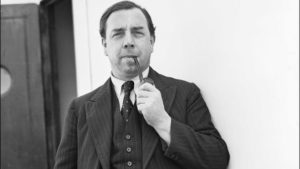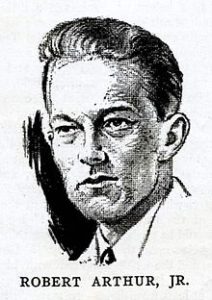We have decided to create the most comprehensive English Summary that will help students with learning and understanding.
The Comet 1 Summary in English by Jayant Narlikar
The Comet 1 Summary in English
Duttada was not a scientist or astronomer. But star-gazing was his pastime. He used to spend long nights studying the stars. His one ambition in life was to discover a new comet. He longed for enough money to buy a good telescope and also free time to study the stars. He got them both after retirement. He bought an eight-inch telescope to fulfil his secret ambition. He knew that comets come from the solar system. Like other planets they too go round the sun. But their movement is unusual. They could disappear for ages.
Indrani Debi, his wife, cursed the telescope. She called it Dibya or Dibya Chakshu i.e. Divine Eye. She thought that the telescope was another woman who had trapped her husband. It made him careless about his own well-being and the practical problems of living. He did not take precautions against cold.
The professional astronomers used big telescopes. Duttada’s eight-inch Dibya stood very little chance of spotting a new comet. Still Duttada was hopeful. He knew that the great scientists looked chiefly at faint stars. They missed such an insignificant thing as comet.
One night Duttada noticed a new comet. Two days later the news appeared in the paper that a Calcutta man Manoj Dutta had seen a comet and it was reported at Indian Institute of Astrophysics. This comet was heading towards the earth, and it would be seen with naked eyes in the next few months. It was named ‘Comet Dutta.’ He became famous, a celebrity.
There were felicitations for Duttada. But he didn’t like functions organised in his honour. He wished he had not discovered the new comet. His wife agreed but for a different reason. She was highly educated, still supertitious. She feared that comets brought ill-luck and calamities on the earth.
At Cambridge University, Dr James Forsyth got a message to see John Macpherson, Defence Science Advisor to the British Government. Sir John handed him an article which James had written and sent for publication to Nature’. It was very important because James had forewarned that Comet Dutta would hit the Earth and destroy it.
The collision could be avoided if it got broken into pieces while coming near the sun or it might collide with some other comet. The tragedy could occur in just ten months.
It was decided to call an urgent meeting of experts to find out ways to save the Earth. They had to do something to push the deadly comet out of the way.
The Comet 1 Summary in Hindi
दत्तादा कोई वैज्ञानिक या खगोलविद् नहीं थे। पर तारों को देखना समझना उनका शौक था। वे लम्बी रातें तारों का अध्ययन करने में बिताया करते थे। उनके जीवन में एक महत्वाकांक्षा थी कि एक नये धूमकेतु को खोज ले। उनकी तम्मन्ना थी कि उनके पास इतना पैसा हो जाये कि वह एक अच्छी दूरबीन खरीद ले तथा सितारों का अध्ययन करने के लिये उनके पास अवकाश हो। ये दोनों चीजें उन्हें नौकरी से अवकाश के बाद मिल गई। उन्होंने एक आठ इंच वाली दूरबीन अपनी गुप्त इच्छा की पूर्ति के लिये खरीद ली। वह जानते थे कि धूमकेतू सौरमण्डल से आते हैं। अन्य ग्रहों की भाँति वे भी सूर्य की परिक्रमा करते हैं। पर उनकी परिक्रमा असामान्य तरीके की होती है। वे युगों तक दृष्टि से ओझल हो जाते हैं।
उनकी पत्नी इन्द्राणी देवी उस दूरबीन को कोसती रहती थी। वह उसे दिव्या या दिव्य चक्षु कहती थी। उनके विचार से दूरबीन उनकी सौतन थी जिसने उनके पति को फाँस रखा था। दूरबीन उन्हें अपनी ही खोजखबर नहीं रखने देती, न ही वह जीने की व्यावहारिक समस्याओं की ओर ध्यान देते थे। वह ठण्ड से अपना बचाव भी नहीं करते थे।
पेशेवर खगोल शास्त्री बड़ी दूरबीनों का इस्तेमाल करते थे। उनके सामने भला आठ इंच दूरबीन से किस प्रकार नये-नये पुच्छल तारों को देख पाना संभव था। फिर भी दत्तादा को आशा थी। वह जानते थे कि बड़े वैज्ञानिक तो प्रमुख रुप से मद्धिम तारों पर दृष्टि रखते हैं। वे धूमकेतु जैसी तुच्छ चीजों को अनदेखा कर देते हैं।
एक रात को एक नया धूमकेतू दिख गया। दो दिन बाद यह समाचार अखबार में छपा कि एक कलकत्तावासी मनोज दत्ता ने एक नया धूमकेतु खोज लिया है और उसकी सूचना बैंगलौर स्थित भारतीय खगोल भौतिकी संस्थान को दे दी है। उनकी खोज की पुष्टि हो गई। वह धूमकेतु पृथ्वी की ओर आ रहा है और कुछेक माह में नंगी आँखों से देखा जा सकेगा। इसका नाम रखा गया ‘दत्ता धूमकेतु’। वह विख्यात हस्ती हो गये।
दत्तादा को बधाईयाँ दी गईं। परन्तु अपने सम्मान में आयोजित समारोह उसे पसन्द नहीं थे। उनकी इच्छा थी कि उन्हें वह धमकेतु, नहीं खोजना चाहिए था। उनकी पत्नी भी उनसे सहमत हो गयी परन्तु उसका कारण अलग था। वह अत्यधिक शिक्षित थी, परन्तु अन्धविश्वासी थी। उसे भय था कि धूमकेतु पृथ्वी पर दुर्भाग्य तथा आपदाएँ लाते हैं।
केम्ब्रिज विश्वविद्यालय में Dr. James Forsyth को संदेश मिला कि वह अंग्रेजी सरकार के सुरक्षा सलाहकार John Macpherrson से आकर मिले। सर जॉन ने एक लेख उन्हें दिखाया जिसे James ने ही लिखकर ‘Nature’ पत्रिका में छपने के लिए भेजा था। यह बहुत महत्त्वपूर्ण था क्योंकि जेम्स ने भविष्यवाणी की थी कि दत्ता-कॉमेट पृथ्वी से टकरायेगा तथा पृथ्वी को नष्ट कर देगा।
इस टकराव को टाला जा सकता है यदि वह सूर्य के निकट आने पर चूर-चूर हो जाये अथवा वह किसी अन्य धूमकेतु से टकरा कर नष्ट हो जाये। यह त्रासदी दस माह में घट सकती है।
यह निर्णय लिया गया कि पृथ्वी को बचाने के लिये विशेषज्ञों की एक सभा बुलाई जाये। उन्हें घातक धूमकेतु को अपने रास्ते से हटाने के लिये कोई न कोई उपाय करना जरुरी था।





